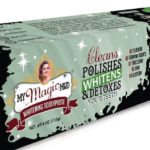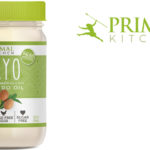Mandarin Oil: Promoting New Cell Growth

(DetoxifySamurai) Mandarin orange oil is derived from the fruit peel of mandarin orange (Citrus reticulata), which has been widely cultivated in many parts of China since the 12th century BC. Depending on the variety, mandarin orange trees can grow anywhere from five meters to seven meters in height.
Surrounded with fragrant white blooms, mandarin orange fruit is usually slightly oblate in shape and has an orange to red-orange color when it ripens.
Aside from the common mandarin, some of the most common varieties based on their horticultural classes are the king mandarin (Citrus nobilis), Mediterranean or willow leaf mandarin (Citrus deliciosa), and satsuma (Citrus unshiu).
Uses of Mandarin Orange Oil
Similar to other fruits from the citrus family, mandarin has a long history of being used in many folk medicine traditions, including traditional Chinese, Indian, and European. They believe that the unripe fruit peel can treat a wide range of conditions – from hiccups, coughs, phlegm, chest pain, gastrointestinal disorder, to liver cirrhosis.
Loved for its sweet and tangy flavor and scent, mandarin orange oil is a popular flavoring ingredient in the food and beverage, cosmetics, and perfume industry.
Mandarin orange oil will also make a wonderful addition to your beauty arsenal. It is proven to improve scars and acne and make a good toner for oily skin.
Benefits of Mandarin Orange Oil
Mandarin orange oil offers an extensive array of well-documented health benefits:
- Protects wounds from potential bacterial, fungal, or viral infections
- Prevents spasms in the respiratory, digestive, and muscular systems
- Treats diarrhea, flatulence, and constipation
- Purifies the blood and removes toxic substances in the body
- Eases inflammation and stress
- Stimulates a healthy appetite
Because of mandarin orange oil’s remarkable calming effects, it has been used to help treat epilepsy, hysteria, insomnia, and convulsions.
How Does Mandarin Orange Oil Work?
Therapeutically, mandarin orange oil is used topically or added in bath oils. To boost its effectiveness, use other essential oils with similar benefits as a carrier oil. For the treatment of stretch marks, cellulites, and fluid retention, juniper berry oil and cypress oil are your best bet.
To freshen up your home, add a couple of drops of this sweet and fruity oil in a diffuser or into a pail of water that will be used for cleaning.
Is Mandarin Orange Oil Safe?
As with any essential oil, mandarin orange oil is generally safe when used properly. However, I highly recommend seeking expert medical advice before incorporating it into your health or treatment regimen, especially if you have any existing medical condition, or if you’re pregnant or breastfeeding.
Side Effects of Mandarin Orange Oil
There is varying literature regarding mandarin orange oil’s sensitizing or phototoxic effects. A good tip I can give you is to dilute it with milder carrier oils to lessen its negative effects, if any, and do not expose yourself under direct sunlight after use.
To avoid any unfortunate incidents, make it a habit to perform a skin patch test before using essential oils, or any new skincare product, topically. If irritation persists, discontinue use immediately and consult your doctor.






